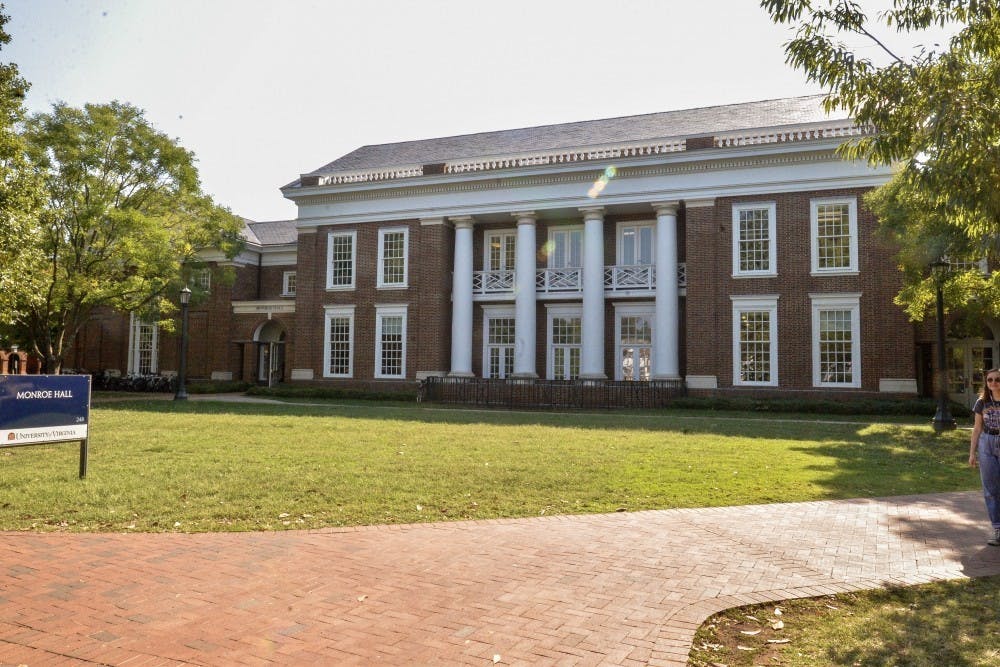The COVID-19 pandemic has undeniably affected all of our lives substantially. As the virus has spread rapidly worldwide, we all feel a sense of acute danger. However, for Asian Americans, the danger extends beyond infection. As Americans have searched for a scapegoat, our failure to contain the pandemic and our president’s reckless characterization of it as a “Chinese virus,” Asian Americans have reported over 1,500 hate incidents in the past month and a half — including at least one at the University.
In light of these numerous incidents, many Asian Americans have been left wondering where all of this animosity came from. Buying into the model minority myth, believing that white America had truly accepted us, we told ourselves that something like this could never happen. However, the warning signs were etched into our history — a history that has been erased, ignored and forgotten. However, at the University, you’d be hard-pressed to have a chance to learn about them.
Asian Americans have always been treated as perpetual foreigners, inextricably linked to our ethnic origins. Chinese Americans — many of whom were born and raised in this country — are blamed and attacked for a virus simply because it happened to originate in China. This crude logic is reminiscent of how anti-Japanese sentiments during WWII led to the mass internment of Japanese Americans, presumed to be loyal to Japan. Andrew Yang’s op-ed in The Washington Post tells Asian Americans to “show without a shadow of a doubt that we are Americans who will do our part for our country.” This idea conjures memories of the Japanese American Citizens League, which encouraged those same Japanese Americans to comply with the internment order and to show their patriotism by supporting the war effort, many of them giving their lives to defend the country that put their families in camps. The indiscriminate targeting of East Asians of all stripes reminds us of Vincent Chin, a Chinese American murdered by Detroit auto workers during a time when the rising Japanese auto industry fueled racial tensions. All of these examples illustrate how crucial Asian American studies is to understand our current moment.
In 1995, the Asian Student Union at U.Va. published a five-year plan pushing for the creation of an Asian Pacific American Studies program. Ten years later, in 2005, the University finally capitulated to demands and created an APAS minor after the hiring of two professors — Pensri Ho and Sylvia Chong. However, 15 years later, many students may not even be aware that the APAS minor exists. In the decade and a half since the minor’s establishment, the University has allowed it to rot in obscurity.
The APAS minor features a single course in Asian American studies — Introduction to Asian American Studies, taught by Professor Chong. Chong taught the course this past semester, but the last time it was offered before that was five semesters ago in the fall of 2017 — and this fall it once again won’t be offered. This means that for an extended period of time, it was impossible to complete the most fundamental requirement of the minor, and that Asian American studies curriculum was entirely unavailable to Asian, Pacific Islander and Desi-American students. Of course, this isn’t Professor Chong’s fault. It’s the fault of the multiple University administrations that have come and gone since 2005 which have bled the APAS minor dry of resources. Further, they have placed an unfair burden on Professor Chong to manage the entire program on her own when she has other interests and classes which she has a right to pursue.
If you need proof that the University willfully allowed for the minor to stagnate, then take a look at the case of Professor Ho, who left the University just one year after the establishment of the minor and was never replaced. Only a year after promising APIDA students that the University was committed to creating a strong APAS program, the program’s faculty shrunk in half — from two faculty members to just one.
In the past few years, there has been incremental progress. In 2018, the Asian Leaders Council published a report calling in part for the departmentalization of the American Studies program, which currently houses both the APAS and Latinx Studies minors. This move, which some say the University has expressed interest in, is a positive step towards revitalizing APAS at the University. However, this alone is insufficient. American Studies encapsulates a wide swath of curriculum relating to different subjects and ethnic groups within the United States including Asian, Latinx and Native Americans.
Even as a new American Studies department would gain the ability to hire faculty for these areas, it is essential that the University provides enough resources for all of them. The University must make concrete commitments to ensure that faculty are hired for the explicit purpose of teaching and researching Asian American studies, and that these hires happen in a timely fashion. If our fellow Virginia school — the College of William & Mary — was able to establish an APIA Studies program with a major and more course offerings than ours in just three years, despite having a smaller student body and a smaller proportion of APIDA students than the University, then we have no excuse.
The University has failed its APIDA students, and in this time of crisis where Asian Americans are being forced to relive the nation’s past mistakes, it is crucial that the University rights its past wrongs. As we enter what’s likely to be a prolonged, turbulent period of Asian American history, APIDA students deserve access to their history and to the tools they need to understand and tackle the problems ahead.
Karl Keat is a 2020 graduate of the University.
The opinions expressed in this column are not necessarily those of The Cavalier Daily. Columns represent the views of the authors alone.







